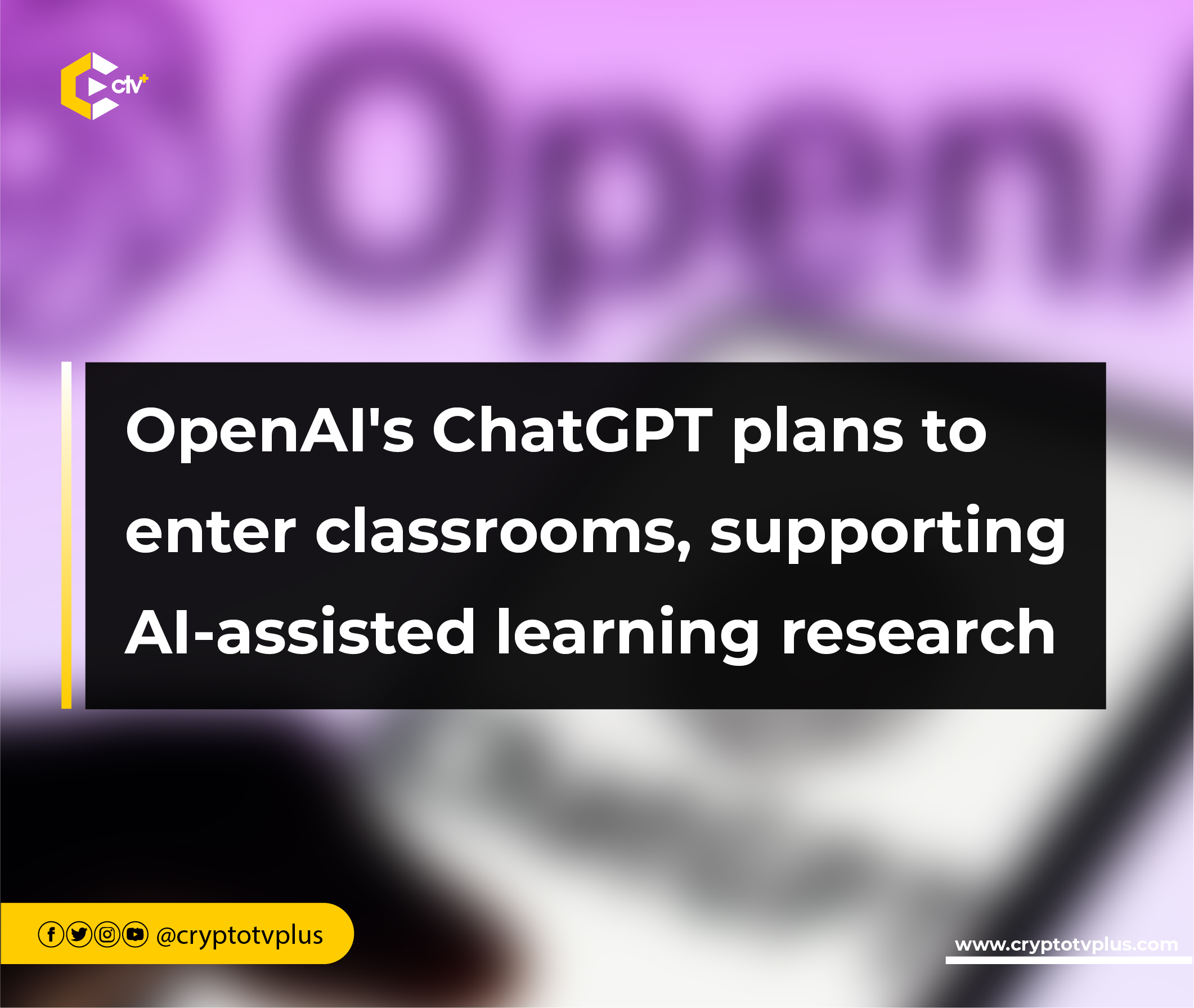News
OpenAI’s ChatGPT plans to enter classrooms, supporting AI-assisted learning research

OpenAI’s dedicated team is focusing on developing educational applications of ChatGPT to enhance learning and child development.
According to Reuters, OpenAI, previously faced controversy over the potential for its ChatGPT chatbot to facilitate cheating in academic settings, is taking steps to integrate the technology into classroom settings. This reflects a shift in the perception and application of generative AI in education, moving from a focus on its potential for cheating to a focus on its potential for enhancing learning.
According to a report, Brad Lightcap, OpenAI’s COO, revealed at the INSEAD Americas Conference in San Francisco that the company plans to create a system to support education through ChatGPT and that the company is currently working on building a team focused on educational uses of ChatGPT. Lightcap stated.
ChatGPT initially raised concerns among educators about its potential misuse in homework and assignments. According to Reuters, Lightcap said that teachers initially “thought it was the worst thing that had ever happened.” These concerns led to bans on the chatbot in some schools and prompted governments to revise and create AI regulations.
Lightcap’s comments reflect a shift in educators’ perceptions of AI-assisted tutoring, from being viewed as a threat to the integrity of academic assessments to being seen as a valuable educational tool. This shift aligns with OpenAI’s ongoing efforts to develop AI-assisted educational resources, such as its partnerships with Khan Academy and Schmidt Futures.
Studies on AI-assisted learning have demonstrated its significant impact on enhancing young children’s understanding of AI and related fields, such as computer science and robotics. It can also foster skills like creativity, emotional control, and computational thinking. This research suggests that OpenAI’s efforts to develop AI tools for educational purposes could have a significant impact on early childhood education (ECE).
However, there has been some opposition to the use of AI in education. This came after a former student at the University of Bristol used ChatGPT to write an essay that received a 2:2 grade.
After the incident, the University of Bristol stated that using AI, including ChatGPT, to write essays without authorization would be considered cheating. Steve West, the Vice Chancellor of the University of the West of England, also warned students that using AI to write essays would be an assessment offence.
Read also: How Stride is transforming liquid staking on Cosmos
























